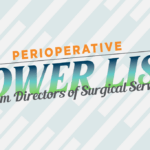Is Your Looming Accreditation Survey Keeping You Up At Night?
Hospital Operating Rooms are finding surveys more stressful than ever before with the risk of reduced reimbursement and potential shutdowns threatening their balance sheet. Don’t let your Operating Room be caught unprepared. Focus on these five common ways your perioperative services can rob you of a good night’s rest.
1. Policies and Procedures
Will be reviewed in the areas of validation, best practices, regulations, and recommended guidelines to meet survey measures. Gap analysis ad brainstorming huddles will be a component of the consultant’s role. New policy drafts are prepared for facility review and approvals may be the role of the consultant.
2. Quality/Infection Control
Indicators for Periop service areas will be conducted during the initial on-boarding phase and throughout the process. Process improvement (PI) recommendations will be identified, prioritized, outlined, and implemented based on an agreed upon action plan and will include necessary auditing. The following agency protocols will be adhered to: TJC, CMS, Title 22, AORN, ASPAN, SGNA, AAMI, IAHCSMM, and APIC. Best practices found will also be highlighted to support leadership’s “managing up” of the critical efforts of the Periop team throughout the program.
3. Competency
Of the staff will be reviewed to ensure that required education, certification, and licensure is current and accessible during the survey. Should the organization find a need, education may be provided as part of the process including organizing in-services, sign off for required job-specific competency, and review of job-specific education for missing documentation. Leadership will be aided in completion of mandatory organizational education for staff.
4. Clinical Documentation
Audits will be conducted to ensure standards are met in preparation for regulatory review. This may include re-assessment of past Requirements for Improvement (RFI) metrics. Other critical areas would include tissue tracking, SPD/ENDO infection control monitoring, and tracers.
5. Continuous Process Development
Your Recognized Expert Consultant will include supply updates, dashboard metrics, reporting, and physical walkthroughs/environmental rounding as collaboratively determined. Open communication is critical to the success of the program. The process will be successful if the surveyor supplies reliable, regulatory-based information and the facility follows the recommendations.











